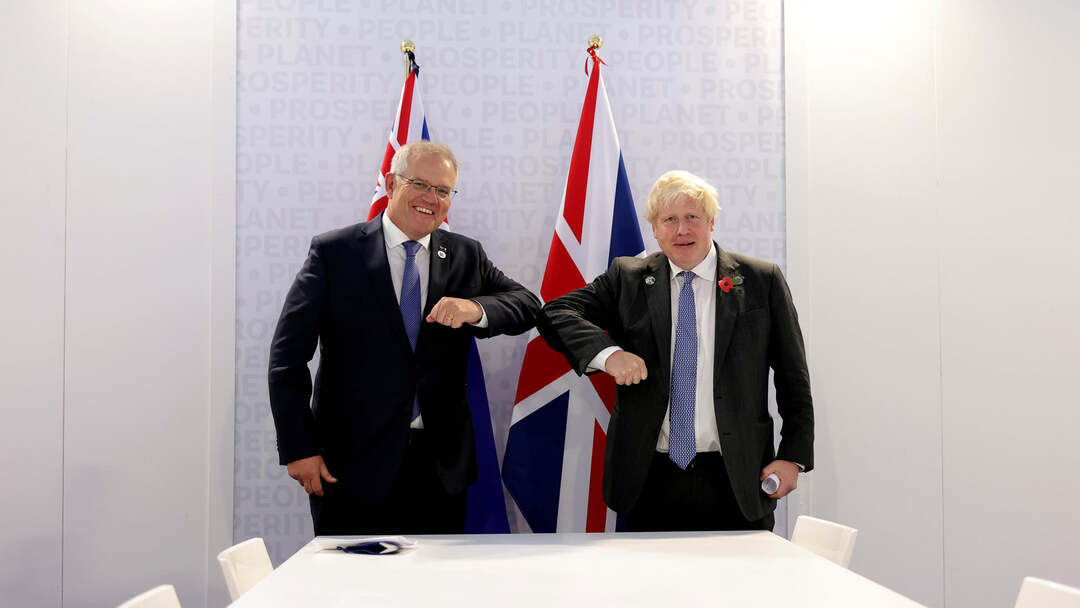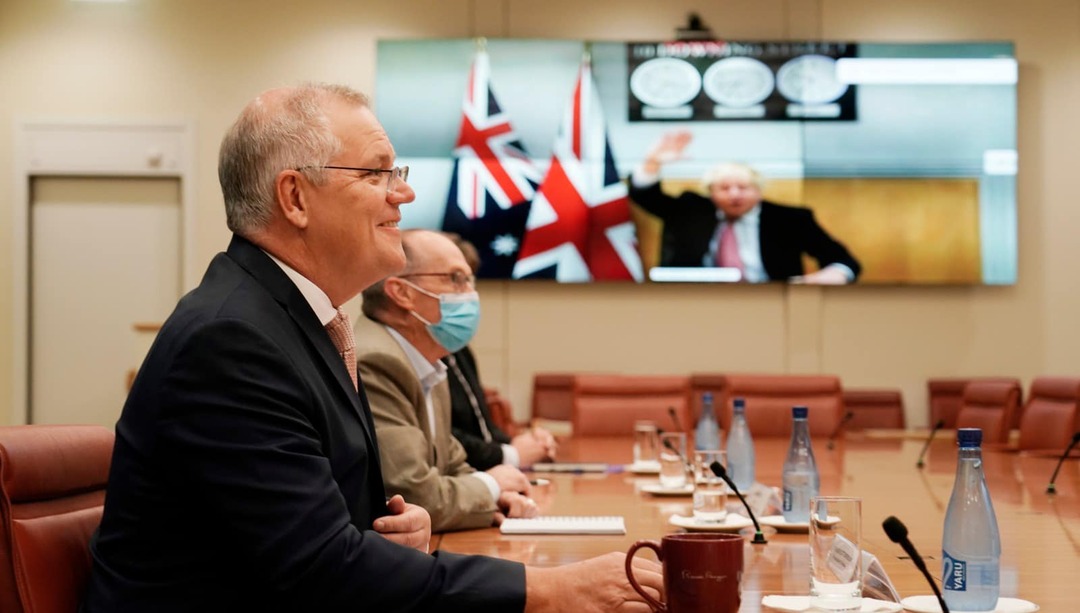-
UK pledges $34 million to enhance security in Indo-Pacific

The Times of Up reported, Britain committed $34 million to strengthen security in the Indo-Pacific as part of a pact with Australia, and the leaders of both countries expressed “grave concerns” about China’s policies in its far western region of Xinjiang.
In a video call on Thursday, British Prime Minister Boris Johnson and his Australian counterpart Scott Morrison also called for peace and stability across the Taiwan Strait and warned Russia against invading Ukraine.
The leaders said in a joint statement after their meeting: “They agreed the need for de-escalation and underscored that any further Russian incursion in Ukraine would be a massive strategic mistake and have a stark humanitarian cost."
Morrison and Johnson said that the funds pledged to the Indo-Pacific security agreement would strengthen regional resilience in areas including cyberspace, state threats and maritime security.

The bilateral talks come just a week after the so-called Quad group of Australia, the United States, Japan and India pledged to deepen cooperation to ensure the Indo-Pacific region was free from “coercion,” a reference to China’s economic and military expansion.
Boris Johnson sees diplomatic opening with Russia, but intelligence not encouraging
Johnson and Morrison expressed “grave concerns about credible reports of human rights violations in Xinjiang, and called on China to protect the rights, freedoms and high degree of autonomy for Hong Kong.”
The United States accuses China of genocide in its treatment of minority Muslim Uyghurs in Xinjiang and abuse including forced and prison labor. China denies the accusations.
Boris Johnson: There is still time for President Putin to step back from Ukraine crisis
China imposed a sweeping national security law on Hong Kong in 2020, a move critics said undercut the greater freedoms promised under the “one country, two systems” framework agreed to when the former British colony returned to Chinese rule in 1997.
Source: timesofup
You May Also Like
Popular Posts
Caricature
BENEFIT Sponsors BuildHer...
- April 23, 2025
BENEFIT, the Kingdom’s innovator and leading company in Fintech and electronic financial transactions service, has sponsored the BuildHer CityHack 2025 Hackathon, a two-day event spearheaded by the College of Engineering and Technology at the Royal University for Women (RUW).
Aimed at secondary school students, the event brought together a distinguished group of academic professionals and technology experts to mentor and inspire young participants.
More than 100 high school students from across the Kingdom of Bahrain took part in the hackathon, which featured an intensive programme of training workshops and hands-on sessions. These activities were tailored to enhance participants’ critical thinking, collaborative problem-solving, and team-building capabilities, while also encouraging the development of practical and sustainable solutions to contemporary challenges using modern technological tools.
BENEFIT’s Chief Executive Mr. Abdulwahed AlJanahi, commented: “Our support for this educational hackathon reflects our long-term strategic vision to nurture the talents of emerging national youth and empower the next generation of accomplished female leaders in technology. By fostering creativity and innovation, we aim to contribute meaningfully to Bahrain’s comprehensive development goals and align with the aspirations outlined in the Kingdom’s Vision 2030—an ambition in which BENEFIT plays a central role.”
Professor Riyadh Yousif Hamzah, President of the Royal University for Women, commented: “This initiative reflects our commitment to advancing women in STEM fields. We're cultivating a generation of creative, solution-driven female leaders who will drive national development. Our partnership with BENEFIT exemplifies the powerful synergy between academia and private sector in supporting educational innovation.”
Hanan Abdulla Hasan, Senior Manager, PR & Communication at BENEFIT, said: “We are honoured to collaborate with RUW in supporting this remarkable technology-focused event. It highlights our commitment to social responsibility, and our ongoing efforts to enhance the digital and innovation capabilities of young Bahraini women and foster their ability to harness technological tools in the service of a smarter, more sustainable future.”
For his part, Dr. Humam ElAgha, Acting Dean of the College of Engineering and Technology at the University, said: “BuildHer CityHack 2025 embodies our hands-on approach to education. By tackling real-world problems through creative thinking and sustainable solutions, we're preparing women to thrive in the knowledge economy – a cornerstone of the University's vision.”
opinion
Report
ads
Newsletter
Subscribe to our mailing list to get the new updates!






















